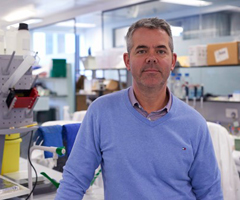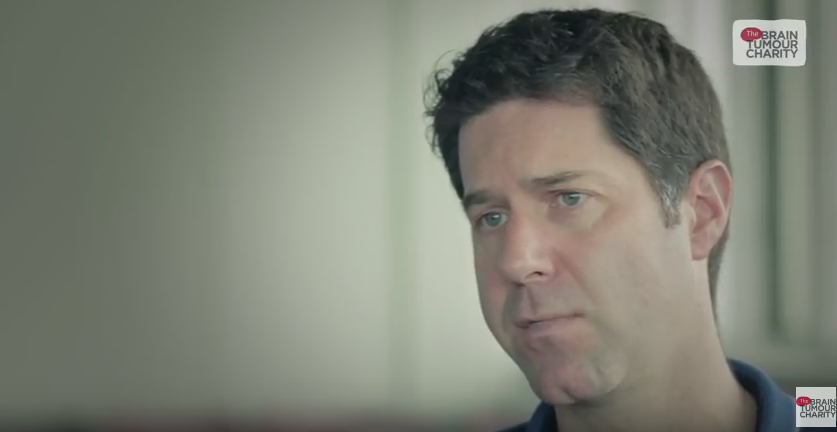Help research forge ahead in Scotland
Research in Scotland is making leaps and bounds in the fight against brain tumours.
Scotland has become a hub for transformative, world-class research into brain tumours, and its institutions are helping to lead the way. We’ve committed £8.6 million to projects in Scotland to date, including our most recent landmark investment of £3 million as part of the Brain Tumour Awards.
But only with more funding can we turn opportunities into discoveries, and ultimately into new treatments. We need your help to create the step change that will lead to a cure!
Spotlight on our research in Scotland
By making a regular or one-off donation, you can help us continue to fund pioneering projects like these. Click on the image below to find out more and make a donation.

Professor Steve Pollard
Linking glioblastomas to DNA-protein parcels
Fast facts
- Professor Pollard’s research aims to increase the number of treatment options for GBM patients and improve their survival.
- Previous research has found that GBMs have mutations in the molecular machinery that controls whether key genes are turned ‘on’ or ‘off’.
- The team is using the latest genome editing tools to understand how these mutations arise and affect GBM growth. They’ll then see if they can target them with existing, already approved drugs.
What’s the latest?
- The second year of the project has seen great progress, with the team performing successful chemical and genetic screens.
- The chemical screening has shown that a family of molecules called HDACs are important to GBM growth.
- The team now aims to test the effects of HDAC inhibitor drugs, which have previously been unsuccessful but the team are investigating new ways of using these drugs.

Dr Alasdair Rooney
Reducing the effects of fatigue
Fast facts
- Most adults diagnosed with a primary brain tumour have some level of fatigue. This can have a profound effect on quality of life, so there’s an urgent need to find new ways to manage it.
- Dr Rooney’s team is investigating if lifestyle changes can alleviate fatigue.
- They’re using lifestyle and behaviour interventions to target diet, exercise, sleep and stress, and improve quality of life and patient satisfaction.
What’s the latest?
- Patients have been recruited to the trial and have started on their respective journeys to manage fatigue.
- Final results are expected later this year.

Professor Anthony Chalmers
Repurposing drugs to treat glioblastomas (GBMs)
Fast facts
- GBMs are aggressive tumours that often grow back after treatment. This is partly because they’re made up of several different types of cell.
- Preclinical research has shown that an ovarian cancer drug, olaparib, can control a tumour’s growth by stopping it from healing itself.
- Professor Chalmers is testing the safety of using olaparib in combination with current standard treatments for GBM, to find out if this improves outcomes for patients.
We urgently need to find new treatments and ultimately a cure, as more and more people are being diagnosed with this devastating disease. I am confident with all this research that this can happen.
Hayley, whose husband Matthew is living with a glioblastoma




